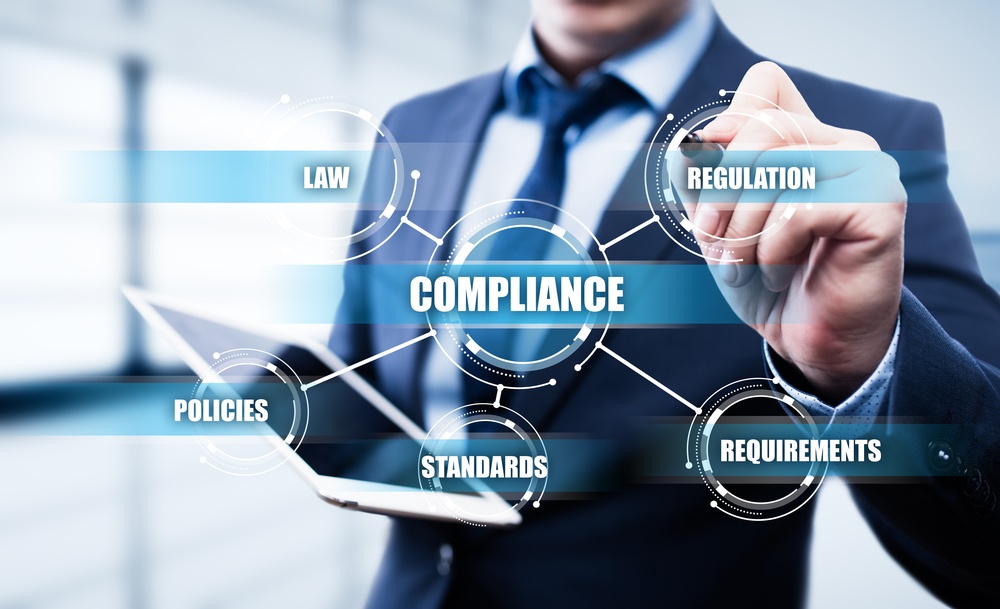What is a compliant system, and how can Sales Enablement Professionals adjust how their systems work to ensure compliance?
Part 1 of this series introduced the European Union General Data Protection Regulation (GDPR) that will come into force throughout the European Union (EU) and European Economic Area (EEA) on May 25th, 2018. That article introduced key GDPR terms and introduced us to Widget Corp, a company selling B2B solutions to firms in the EU, who is affected by the GDPR.
Widget Corp’s Sales Enablement team is now responsible for ensuring that the way the sales team engages with customers is in compliance with GDPR.
Sales Enablement is critical to Widget. It delivers higher win rates by providing the most relevant content, training, and other information available to the sellers when they need it - often in front of a real prospect or customer - as well as driving productivity for the sales team, helping them to get more time back for selling actives by automating manual processes. However, Widget’s Sales Enablement Professionals are concerned about changes in the way they educate their sellers about how to work with customers. After all, implementing now processes can take a hit on revenue.
But with some sensible planning, whilst GDPR will require Widget to offer some new capabilities to prospects and customers, it should improve trust and allow for better engagement with customers, and actually reduce work and distraction by reducing engagements with prospects that don’t want to become customers.
Widget’s sales people engage with customers through calling (both pre-arranged and cold calling), emailing customers both that they have an existing relationships with, and new people that are not already leads or customers, and through their websites. All of these contact points could create potential GDPR issues for Widget. Let’s dive into those scenarios.
1. Cold Calling
The GDPR does not stop Widget’s sales people from making calls to potential customers, but for accountability purposes, each Widget sales person should record when they made the call and how long the call lasted.
It’s also important for Widget to track whether the person was open to being contacted again.
This degree of sales call reporting is something new to Widget and if the sales team isn’t all on the same page in terms of its importance, Widget could find themselves in compliance risk.
2. Emailing prospects and customers
This is one area where the GDPR rules can be confusing, and maybe even seem a little conflicted. Sending emails could be regarded as direct marketing - which is a legitimate approach to selling under GDPR - but direct marketing does fall under the separate ePrivacy Regulation, which is very strict on how the recipients give their consent to be contacted.
The line here is drawn directly in regards to how these emails treat the recipient’s right to privacy, consent, and right to be forgotten.
For Widget, this is a change from how they have traditionally operated. But one thing’s for sure - this spells the end of purchased email lists. However, the remaining, legitimate opt-in lists that Widget has curated and maintains have higher quality leads, providing a more engaged database.
It’s worth noting that there is a particular exception to this rule. You are allowed to reach out to people whose email addresses you obtained in the course of a sale, unless they have opted out (a fact you’ll need to record). However, even in this circumstance, you’ll need to prove the email you send is about products or features related to the initial sale.
3. Website Tracking
Information obtained through website tracking and cookies can provide salespeople with critical details to help them determine the best outreach strategy. But of course, the data you collect about the recipient’s interactions with the website will now qualify as personal data – which means it will be subject to the GDPR.
The Article 29 Working Party (the EU body that issues guidelines on data protection) has specifically called out tracking as a concern, particularly due to the prospect’s lack of awareness of the tracking in most cases.
It’s true that GDPR rules could certainly put a hurdle in the pathway of Widget’s existing successful sales team, and cause them to get distracted from the critical task of building relationships with customers to focus on compliance and recording interactions.
However, for Widget, their Sales Enablement team is ahead of the curve. They have found Sales Enablement software that is able to help them to achieve GDPR compliance with minimal impact on the sales team.
Sales Enablement software can do a lot to help. First and foremost, quality software helps the sales team to be better prepared for customer engagements. And when that software provides a beautiful, mobile first experience, the salesperson can impress the customer without having to rely on emails and follow ups that may cross the line with GDPR (and other privacy laws including ePrivacy, and CanSPAM in the USA).
But smart sales enablement software goes further - directly helping to ensure that the Widget sales team is able to keep their sales in motion.

1. Cold Calling
Whilst sales enablement software is not the ‘dialer’ making calls, it can allow the sales person to quickly, easily and automatically record how long the call was, what content was used in the call, and when sharing call follow-ups, can even automate the process to allow the recipient to ‘opt-out’ of any future calling campaign.
2. Emailing
Sales Enablement software ensures that reps can only send appropriate content to specific people, and can even create automated emails that have compulsory content automatically added to them, ensure that all recipients are in control of their details, can transparently update CRM and marketing automation systems (for opt-out lists and more), and can eliminate the risk of the sales person getting in trouble sending the wrong emails to the wrong person.
3. Tracking
While Sales Enablement is not designed to help with website and mass emailing programs, it is used to help the sales person to understand the history of how their colleagues (based on their consent) have been successful with other similar customer engagements. The ability to leverage the tribal knowledge is an incredibly powerful part of sales enablement.
The Sales Enablement team at Widget has started planning for GDPR by working with external solutions vendors who can help to achieve the goals of sales enablement but are ready for GDPR. Widget looked for software vendors that could help their sales teams to be successful in the cut and thrust of customer engagement, but also had the control to protect Widget from GDPR claims and other privacy and control issues.
With Sales Enablement in place, Widget can be more confident that the GDPR regulations are only going to improve how their sales teams work, reduce their everyday load of tasks, and improve their success rate.
The third and final portion of our series will focus on what a policy like GDPR could look like if implemented for US prospects and customers, and how to prepare for the possibility.
Miss Part 1 of our series? Check it out here.


